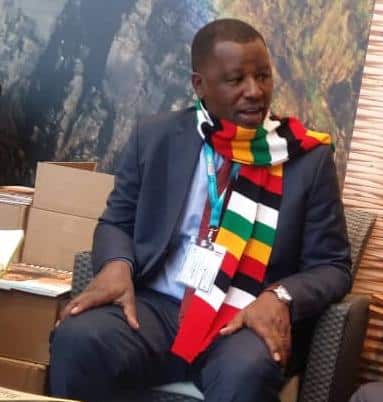By Anyway Yotamu
The National Climate Policy recognizes that climate change is a real threat to the country’s socio-economic development with a potential of reversing hard-earned developmental gains achieved over the past decades hence the government urges the private sector to work closely with the responsible departments and apply for grants for the Green Climate Fund (GCF).
Speaking to this publication on the sidelines of the Green Climate Fund Readiness National Stakeholders Validation Workshop in Harare, Permanent Secretary in the Ministry of Environment, Climate, Tourism and Hospitality Industry, Munesushe Munodawafa said, “In March this year we secured USD47 million under the Green Climate Fund (GCF). As we’re meeting now, the focus is to utilize that US$47million.
“A lot of it will go towards Green Climate Mitigation. As a country, we are strategizing and positioning ourselves so that we can submit project proposals to secure additional funding under the Green Climate Fund. When I talk about the Green Climate fund, it should be noted that it’s not just government; even the private sector can secure funding under (GCF). So I urge the private sector to work closely with the ministry for any project which they feel may qualify under the (GCF) so that we assist them, where possible, in securing that funding,” he said.
The 2015 Sustainable Development Goals (SDGs) identify climate as a major threat that can derail global socio-economic development. Munodawafa said Zimbabwe has since approved two projects under the GCF.
“As for Zimbabwe, two projects have been approved by the GCF with the initial funding of USD10 million going to a project titled, ‘Integrated Climate Risk Management for Food Security and Livelihoods in Zimbabwe’ with the World Food Program (WFP) as the accredited entity. At its 25th meeting in March this year, the GCF Board approved a number of projects including Zimbabwe’s second major project worth USD47,8 million, for building Climate Resilience of Vulnerable Agricultural Livelihoods in Southern Zimbabwe, with United Nations Development Program (UDP) as the accredited entity. The country has also mobilized readiness funds from the Green Climate Fund of over US$5 million”, Munodawafa said.
The Permanent Secretary said with the weather changing daily, unlocking financial resources is very critical to address climate change concerns in the country.
“Climate change hazards are exacerbating poverty, food insecurity, malnutrition, water shortages, and environmental degradation among other developmental challenges, which threaten to derail the development strides made by Zimbabwe since independence. Observations and studies point out that climate is a major driving factor for most of Zimbabwe’s socio-economic activities, especially in the energy and agriculture sectors. This is shown by Gross Domestic Product (GDP) trends, close linkages with rainfall patterns and still fresh in our minds are the recent impacts of climate change as a result of extreme weather events and disasters like the devastating effects of cyclone Idai in Eastern Zimbabwe and cyclone Doneo in Matabeleland North. Recurrent droughts, hailstorm, and erratic rainfall have also become common events in the country, hence there’s a need to work together with the private sector and NGOs,” said Munodawafa.
“Despite the government of Zimbabwe’s efforts to assist communities in periods of disasters, the magnitude of the impacts often require additional resources from development partners to complement the allocation from the Treasury. The situation is not peculiar to Zimbabwe alone but to the entire developing world as a whole. This has resulted in countries which are signatories to the Climate Change Convention calling for assistance from the developed world partners,” he added.
In 2013, the global family created the Green Climate Fund (GCF) and dedicated it to supporting the global effort to respond to the challenges of climate change. The GCF is the largest climate fund in the world. It is an operating entity of financial mechanism for the United Nations Framework Convention on Climate Change (UNFCCC) and the Paris Agreement.
The Green Climate Fund helps developing countries limit or reduce their greenhouse gas (GHG) emissions and adapt to climate change. It seeks to promote a paradigm shift to low-emission and climate-resilient development pathway, being cognisant of development.
In Zimbabwe climate change is increasingly manifesting itself in the form of erratic rainfall patterns, increased frequency of droughts, bearing on Zimbabwe’s agriculture, energy, health, and water sectors just to mention a few.






